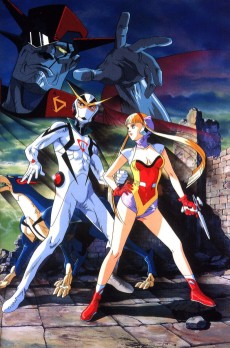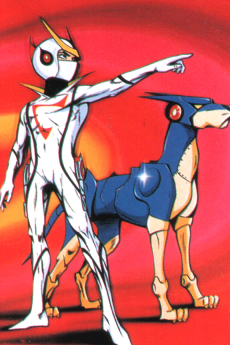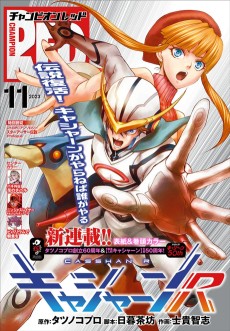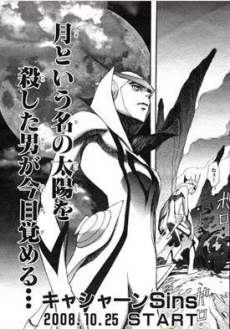CASSHERN SINS
STATUS
COMPLETE
EPISODES
24
RELEASE
March 16, 2009
LENGTH
24 min
DESCRIPTION
In the distant future, where cyborgs and humans struggle to survive after the war which destroyed the world, a being in white suit awakens. His name is Casshern and he remembers nothing of his own past.
In barren and dark dystopian world, where every being alive seems to hate his existence and the evil from his past wants him dead, Casshern, haunted by the flashes of his past memories has to survive and figure out who or what exactly he is and how he got to where he is now. But he does not know that he might not like the horrible truth of the past, hidden deep inside his mind...
Created as an intended reboot of Casshern franchise.
CAST
Casshern
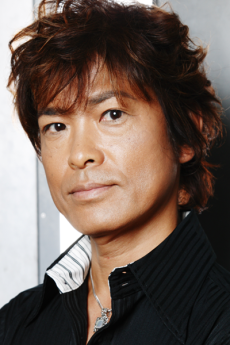
Tooru Furuya
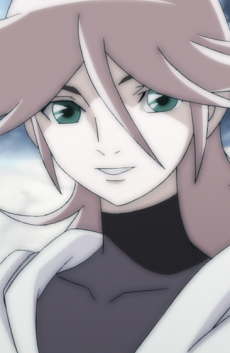
Lyuze

Nami Miyahara
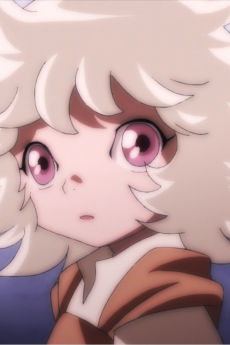
Ringo
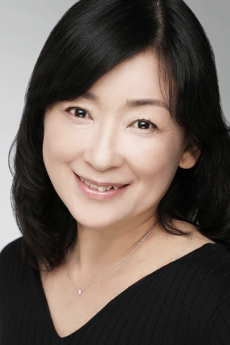
Yuuko Minaguchi
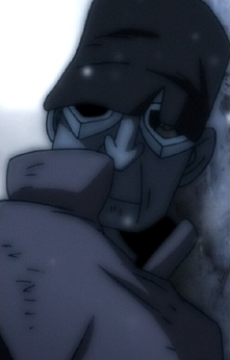
Ouji
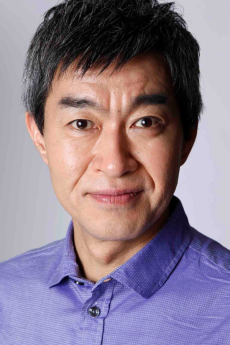
Choo
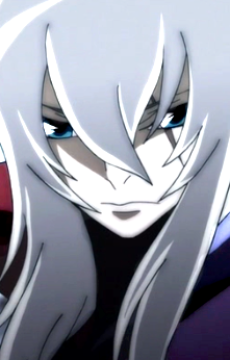
Dio
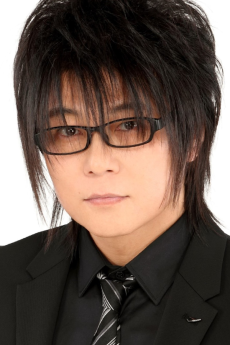
Toshiyuki Morikawa
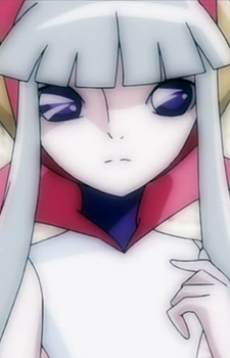
Luna Kozuki
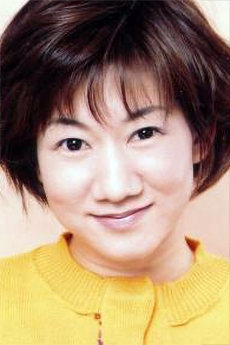
Aki Uechi
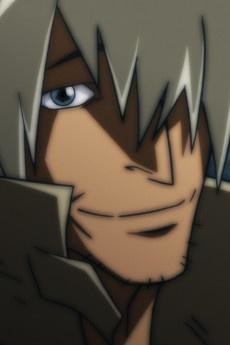
Akoz
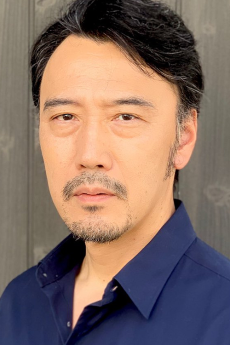
Yuuto Nakano
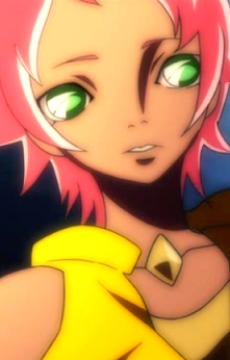
Sophita

Tomoko Akiya
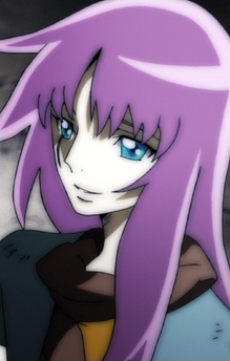
Margo
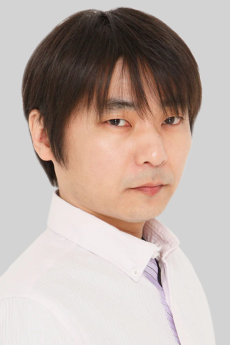
Akira Ishida
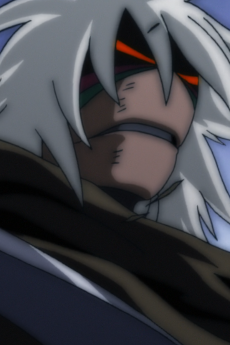
Dune

Yuuto Nakano
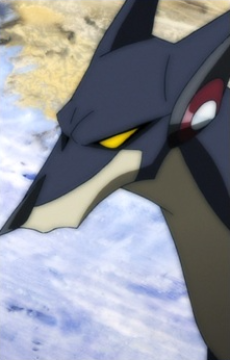
Friender
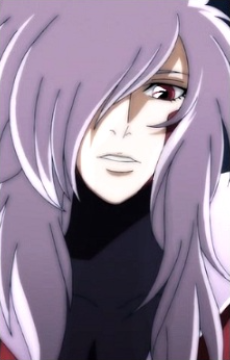
Leda
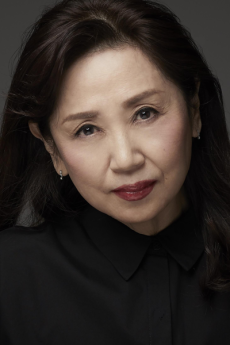
Mami Koyama

Braiking Boss
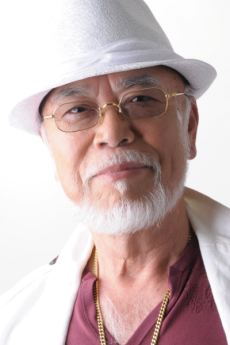
Kenji Utsumi
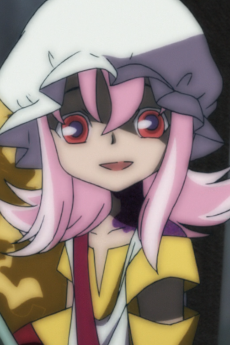
Nico

Taeko Kawata
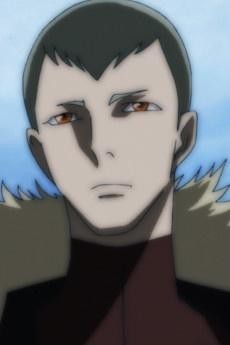
Jin
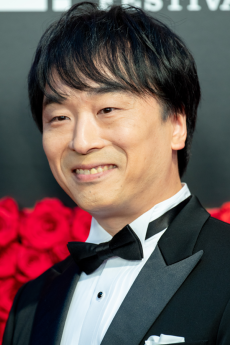
Tomokazu Seki
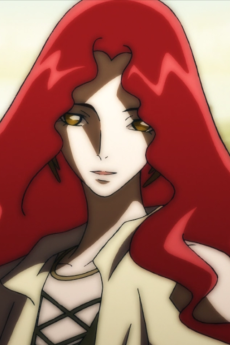
Janice
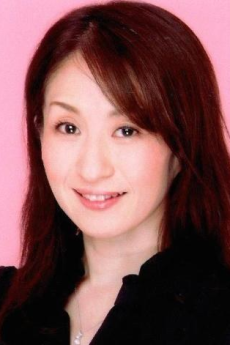
Yuka Shino

Lizabel

Mami Koyama
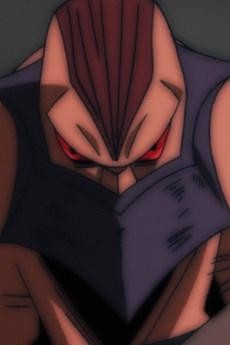
Vulcan
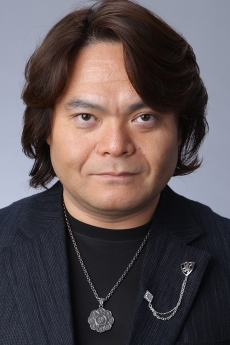
Kiyoyuki Yanada
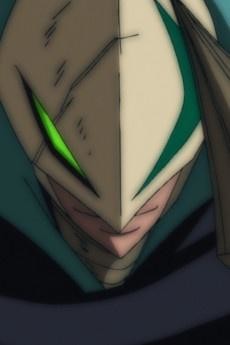
Mars
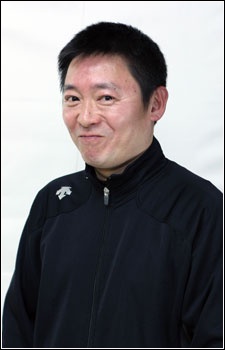
Katsuya Shiga
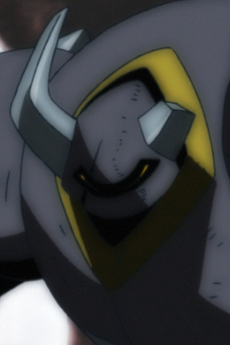
Boulden

Choo
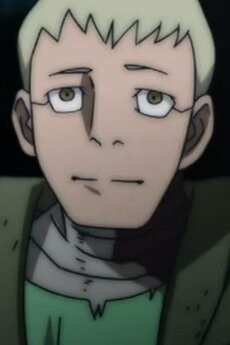
Root

Akira Ishida
EPISODES
Dubbed
RELATED TO CASSHERN SINS
REVIEWS

aikaflip
80/100“Ruin is the salvation of man and machine.”Continue on AniList“Ruin is the salvation of man and machine.”
Deceptively complex themes hide beneath a flamboyant exterior of fast action fight scenes and fancy shot compositions. The director, Shigeyasu Yamauchi, who has a propensity for psychological studies and aesthetic stylishness, uses Casshern Sins as an opportunity to deconstruct death and hope with striking visual panache.
The first episode establishes the premise with a satisfying level of badassery. In the distant future, Robots have evolved sentience, and can feel emotions like humans can. A global "Ruin"—with a capital R, implying that it's more than an action—was prompted when Casshern, a highly skilled and gaudily dressed fighter, "killed the Sun named Moon." Now both humans and robots are on the brink of extinction.
The robots hadn't appreciated their lives until death became a reality for them. Having been immortal up until the Ruin, being confronted with the realization that their existence would soon end terrifies them. For some, particularly the humanoid robots, this fear is quelled by love, community bonds, or passionately engaging in an interest. For others, this fear is expressed violently through random acts of desperation and senseless cruelty.
Everyone except Casshern is affected by the Ruin. As the bodies of the other robots quickly deteriorate, Casshern's body remains new, and regenerates when it’s damaged. There’s a rumor that the one who "devours" Casshern will become immortal. Consequently, when many robots encounter Casshere and learn of his identity, they have no qualms with abandoning their "humanity" to seize an opportunity to regain their immortality.
By the halfway point of this series, listening to bleak soliloquies on death and hope—but mostly hopelessness—became mildly taxing. To be fair, the trepidation expressed by these robots is understandable when we consider how new of an experience death is for them. Humans have had over 200,000 years to develop coping and denial mechanisms for death anxiety. On this level, it's not difficult to feel some pity for the robots.
There's the occasional melodrama and sentimentality, which is effectively scored with slow strings or an acoustic guitar. You can see the emotional chords that they're trying to pull, but it doesn't take much effort to go along with it if you withhold cynicism. The action scenes are scored more aggressively, often utilizing tremolo strings or heavy horns like those heard in 90s era historical-action films. Sometimes there's no score at all, and the scene is simply textured with the sounds of wind, rain, or debris.
The overall style is retro by modern standards, which is to be expected from a director who’s been in the anime industry since the 80s. Unfortunately, this old school style is accompanied by some unflattering old school stereotypes that may annoy some viewers. The one unambiguously black character is a lustful degenerate, and the leading female characters are either manipulative or easily love struck. Even Ringo, an overly cute loli robot who looks like a 4-year-old, fawns over Casshern when she first meets him.
Casshern Sins has brilliant ideas and beautiful animation that are hampered by some repetition, occasional missteps in characterization, and what some might consider plot holes. The faults aren’t enough to Ruin the viewing experience, but they do hold it back from being the psychological masterpiece that it could have been. With all that said, I still recommend this series if you're looking for something dark and thoughtful to watch.

Satosheeeeetos
100/100Resumindo tudo, Casshern Sins é perfeito em todos os aspectos que precisa ser.Continue on AniListCasshern Sins é um anime que teve sua última adaptação sendo feita pela Madhouse, mas que infelizmente não acabou recebendo grande popularidade mesmo com toda a fama do estúdio, o que é bem triste, pois essa sem dúvidas é uma das melhores, se não a melhor jornada de aprendizado de um protagonista que eu já pude experienciar até hoje.
Execução de proposta/Enredo:
A premissa de Casshern é simples inicialmente, explorar a jornada de Casshern, uma máquina que causou a destruição de todo o mundo, gora sem ter suas memórias e saber o motivo para tais ações, tendo que entender o porque de ser tão odiado por todos e todo o mundo estar naquela situação deplorável. Isso por si só já é bem interessante por usar de uma sociedade distópica um pouco diferente do adrão, mesmo que de forma não tão inovadora. Sendo sua execução realmente o que a torna bem única, pois não foca exatamente em mostrar como tudo chegou àquele ponto, e sim em transpor várias lições de seres que estavam à beira da destruição por causa do próprio Casshern, endo elas retratando a lealdade até o fim, ou até mesmo o resquício de esperança que era necessário ter mesmo depois de tanta desgraça, e várias outras no meio do caminho, tudo isso culminando para uma conclusão bem interessante, pois no fim nada de milagroso aconteceu para aquele mundo como todos esperavam, mas ainda assim conseguiu fazer um final "feliz", para compensar todos os personagens principais que foram desenvolvidos juntos ao Casshern. Meu único grande problema com o enredo, fica no episódio 17, em que é feito um drama muito mais fraco que todos do anime, sendo ele quase completamente desnecessário, exceto por sua conclusão que ajudou a evoluir um pouco mais uma das personagens. E como já citei a sua conclusão, devo sem dúvidas ressaltar a linda reflexão que o anime conclui sobre a vida e a morte, mostrando o quão a morte pode ser vantajosa para os seres daquele mundo, pois seria como uma libertação, uma garantia de momentos felizes pós-destruição. Mas, ao mesmo tempo, sendo um acontecimento muito árduo para o Casshern, pois ele é o ser "perfeito", e nunca conseguirá desfrutar de outros momentos bons ao lado das pessoas queridas por ele, pois ele só possui o lado "ruim" que é a vida naquele mundo. Acabou realmente sendo um final bem interpretativo e que pode ter várias explicações possíveis, mas foi essa a visão que eu tive em minha experiência com a obra.Personagens:
E como já deu para perceber, Casshern foca muito em seus personagens, mas não em questão de desenvolvimento, e sim em construção de seus ideias para que fiquem compatíveis com o próprio enredo, e isso é feito de uma forma magnífica e sem igual com toda certeza, com cada novo personagem tendo seu diferencial para a evolução da compreensão do próprio Casshern com aquele mundo.
Mas ainda assim há vários personagens com um desenvolvimento realmente considerável, como a própria Ringo, uma criança que é o primeiro símbolo de esperança para o Casshern. A Lyuze, uma personagem frustrada com o próprio, mas que acaba o apoiando depois de todas as atitudes positivas do personagem. E os próprios vilões, que realmente tem um papel "digno" para o mundo, não sendo apenas puramente maus, e sim ajudando a deixar mais equilibrado ainda todos os vários pensamentos inseridos no enredo do anime.Produção e direção:
Outro GRANDE ponto positivo do anime é sua produção, que não chega a ser uma das melhores do estúdio, mas é bem competente durante todo o anime, com grande ajuda da direção, sendo perfeita em passar as mensagens indiretas em cada episódio do anime, de forma que não fique tão confusa como poderia ser para o espectador. E eu preciso bater palmas também para a incrível ambientação que a direção conseguiu fazer, passando realmente a sensação de angustia, destruição, e dor que aquele mundo parecia trazer a todos que o habitavam.World Building:
E claro que eu não poderia deixar de falar separadamente da construção de mundo que esse anime tem, que é simplesmente fenomenal. Ele não necessariamente explica tudo que aconteceu ponto a ponto, ele explica as consequências, os resultados, as mudanças, o que cada lugar apresentado tinha de importante e restante naquele mar de destruição. Isso ainda acaba sendo muito melhorado devido a direção conseguir fazer o espectador se sentir no lugar do Casshern, alguém confuso, que quer entender porque tudo era daquele jeito, e acaba fazendo isso de uma forma não tão concreta, mas ue ainda assim é muito completa para a proposta da obra.Experiência:
Sem dúvidas foi uma experiência excepcional que esse anime proporcionou para mim, algo único e que com certeza deixou ótimas mensagens boas de se remeterem até mesmo ao mundo real, e que realmente ficam marcadas. É uma das melhores, se não a melhor obra da Madhouse, que infelizmente não tem o reconhecimento que merece.
Luffy0
94/100Life Can Only Be Treasured Amidst The Foreboding Of DeathContinue on AniList#__Casshern Sins__ #“Ruin is the salvation of man and machine.” 
Dystopian literature repeatedly falls under a common misconception deriving from the thematic statements it brings forth. They have a tendency to function as an analogy for similar issues in the modern world, gravitating towards the principles of social and political structures. Characters are the prime driving force representing a counter-culture movement. At face value, the motifs presented are capable of heedlessly altering the narrative into a convoluted disarray. Merging conflicting elements are bound to overwhelm one another without a cohesive outline. It is a conventional fault for a number of media, not apprehending the fact that more precarious concepts require even greater implementations. Casshern Sins acknowledges the aforementioned in a straightforward yet refined manner. An unorthodox approach so congruous and self-effacing with minute precision; perhaps a metaphysical exploration of the human condition. There is a cunning and stylistic flare inclined to its commentary that I have never experienced in the medium to date. Concise and pragmatic in regard to the notions it brings about, drawing inspiration from the adage "Death is not the opposite of life but an innate part of it." The inanimate classifications expressed has been a gold standard throughout the program's brief runtime. Stemming from the previously mentioned compositions, Madhouse's Casshern Sins unveils a melancholic inquiry of self-worth and the morality of life. A transcendent depiction of the inevitable decline humankind faces coming forth.
__
Suffering from financial difficulties in the late zeros, the industrial monopoly known as Madhouse continued to produce a great deal of ambitious projects. A majority of them were a gamble on their part including Casshern Sins, a reboot of the 1973 anime series Neo Human Casshan. The franchise has beforehand inspired a live-action film in 2004 and a 1993 OVA Casshan: Robot Hunter by studio Artmic, unfortunately the latest installment was unable to meet the sufficient revenue intended. Considering that the reboot turned out to be a setback for the studio at the time, it was not a commercial hit and gradually went under the radar. It is dissatisfying to see how the broadcast did not get the recognition it deserved, bearing in mind the profundity displayed.
The strategic vision of the directorial staff was a commendable undertaking, reason being the modifications and groundwork implemented were crafted to near perfection. A dismal ambience had been upheld and expressive craftsmanship encapsulated in the visual arrangements. Wada Kaoru's score can be considered the most pretentious component in the production, arranging a mix of symphonic blues and acoustic guitars accompanied by melodious piano notes. Audio placement was done meticulously, providing nuance to the tropes and illustrations put forth. The animation quality doesn't exactly stand up to modern standards; the director's exposure to the industry being a key factor as to why. A smart move nonetheless, seeing that ostentatious effects and streamlined morphing could potentially contradict the overall allure at hand. There had been an appreciable amount of forethought put into the environment as well, distinguishable from the desolate landscapes. Backgrounds were formulated with an assemblage of somber and more duskier colorations, more specifically anything on the spectrum of grey. It really captures the character aesthetics in a visually arresting way. The presentation all together gave the impression that life was draining from the very depth of earth itself, correlating to the subject matter before our eyes.
#The Philosophical Outlook On Life And Death Logically speaking, a decaying wasteland engulfed in rust and atmospheric corrosion typically dismisses any indication of life towards audiences. The seamless nonstandard method Casshern Sins conveys its concepts is ingenious on all accounts. Casshern, an invulnerable cyborg, endeavours to find moral justifications in a world he destroyed. Episodic adventures steadily unravel a tale of epitomized loss, conviction, desire and redemption. A comprehensive introspection in relation to his character through cognition. He seeks to understand the significance of life through the existence of death. The dispirited cries from passing machines enlarge on how endearing and treasured the course of life really is. There are numerous ways one can explicate the matters presented, considering that the script left many situations for viewers to interpret. Embodying several unpretentious themes, the philosophical scope exhibited is able to feel quite excessive every so often. One can argue it focuses more on the thematics than the encompassing narrative, however all things considered they both bring together a balanced conclusion.
The leading premise undeniably takes inspiration from dualistic cosmology, putting emphasis on how contrary forces may actually be complementary and interconnected to one another. It interrelates perfectly with the phrase “Ruin is the salvation of man and machine.” Perhaps ruination exists as the sole means of escape for the immortal. To treasure one's life, there must be a limited shortage placed. The concept pertaining to appreciation cannot occur if something was infinite. A key exemplar in relation to how balance will always be attained, even in an asymmetrical universe. Casshern Sins demonstrates that only in view of death can the value of life truly be discovered.
__
Thanks for reading !
SIMILAR ANIMES YOU MAY LIKE
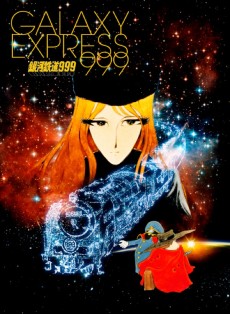 ANIME AdventureGinga Tetsudou 999
ANIME AdventureGinga Tetsudou 999 ANIME AdventureShoujo Shuumatsu Ryokou
ANIME AdventureShoujo Shuumatsu Ryokou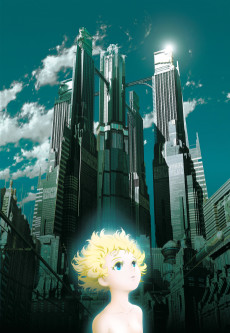 MOVIE AdventureMetropolis
MOVIE AdventureMetropolis MOVIE ActionKaze no Na wa Amnesia
MOVIE ActionKaze no Na wa Amnesia ANIME AdventureKino no Tabi: the Beautiful World
ANIME AdventureKino no Tabi: the Beautiful World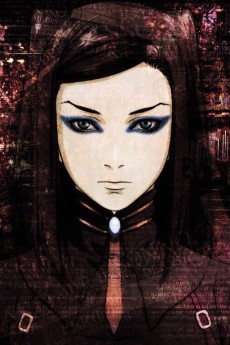 ANIME AdventureErgo Proxy
ANIME AdventureErgo Proxy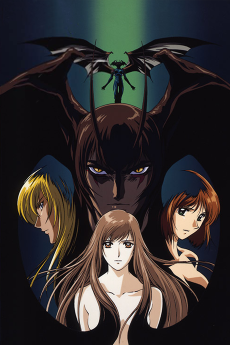 ANIME ActionDevilman Lady
ANIME ActionDevilman Lady ANIME ActionTEXHNOLYZE
ANIME ActionTEXHNOLYZE OVA DramaTenshi no Tamago
OVA DramaTenshi no Tamago
SCORE
- (3.7/5)
TRAILER
MORE INFO
Ended inMarch 16, 2009
Main Studio MADHOUSE
Favorited by 926 Users

